News
Ancient grains have become household names
28 May 2018Until very recently, few consumers had heard of quinoa – and even fewer knew how to pronounce it. Now, it is one of the most sought-after grains, appearing in over 2,200 new products launched globally in 2017, according to Mintel.
Ancient grains are appearing in an increasing number of foods, as global consumers seek healthy, wholesome alternatives to traditional grains. From snacks and cereals, to baked goods and even dairy and beverages, manufacturers are finding diverse ways to tap into this growing trend.
Many ancient grains have become household names in the past few years, including quinoa, buckwheat and chia. From 2014 to 2015, the number of new foods and drinks launched globally containing chia grew 70%, for example, according to Mintel’s Global New Products Database, while those containing quinoa rose 27%. Others such as teff, amaranth, freekeh, khorasan wheat, millet and sorghum are also turning up in a range of products, not only for their nutritional value, but also to add a distinctive taste and texture.

Mintel Group says German consumers are particularly interested in ancient grains, where they have been used in wholegrain bread for centuries. However, they are now benefiting from new positioning as ancient grains or supergrains, extending their appeal to a younger generation of consumers. While 30% of German adults are interested in trying bread containing superfood grains or seeds, interest among those aged 25-34 reaches 46%. Meanwhile, 30% of pasta consumers in the UK think that pasta made with ancient grains is healthier than regular pasta, the market researcher says.
Sprouted grains have also gained ground as consumers have become more aware of their nutritional benefits. Sprouting increases the amount and bioavailability of certain vitamins and minerals, and may make grain proteins easier to digest.
Many ingredient suppliers have extended their range to tap into this demand for ancient grains in a variety of forms.
Taura Natural Ingredients , for example, has incorporated chia and amaranth into real fruit flakes for use in breakfast cereals. It says this solves a common problem associated with dense ancient grains that tend to sink to the bottom of the bowl when milk is added, while also providing an appealing flavour.
In 2016, Corbion Caravan launched a range of pre-soaked ancient and whole grains that are not treated with preservatives, allowing companies to incorporate grains like oats, millet, amaranth, chia, cracked wheat, whole grain barley, whole rye kernels and quinoa into baked goods, while also meeting consumers’ clean label expectations.
Meanwhile, GoodMills Innovation released its 2ab Wheat last year, an ancient wheat variety said to be suitable for those with gluten sensitivity (although not for those with coeliac disease). Apart from this particular variety of ancient wheat, consumers who suffer from gluten sensitivities or intolerance are attracted to ancient grains that are free from gluten, the protein in wheat, barley and rye. Gluten free options include amaranth, quinoa, chia and sorghum, and offer a nutritional boost and improved texture in gluten free baked goods and snacks.
While many food trends are met with scepticism about their longevity, the rise of ancient grains looks set to continue as it taps into so many current market trends, including for high protein, minimally processed foods, as well as the move toward more plant-based eating.
Related news
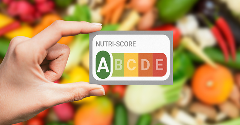
Danone removes NutriScore from products
20 Sep 2024
Following an algorithm update that gives some of its sweetened drinks a worse score, Danone has removed the front-of-pack label, NutriScore, from all of its products – putting profit before public health, say campaigners.
Read more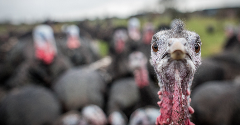
Diestel is first turkey producer to snag Regenifed certification
17 Sep 2024
In the US, Diestel Family Ranch, a family-owned turkey farming venture, has become the first producer to gain Regenified certification for its whole turkey and processed turkey product ranges.
Read more
Indonesia introduces new halal certification system
9 Sep 2024
International food and beverage companies importing halal products into Indonesia need to adhere to new rules after the country introduced a new halal certification system.
Read more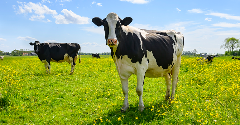
Tesco trials methane mitigation supplement for dairy cattle
5 Sep 2024
Tesco is trialing a methane-reducing feed supplement for one of its key UK dairy farms, sustainable UK milk producer Grosvenor Farms.
Read more
USDA launches new nutrition hub network
22 Aug 2024
The United States Department of Agriculture (USDA) will invest $4.5 million into providing nutritional advice and guidance across the US.
Read more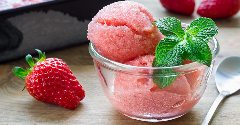
Better Juice expands its range to sorbets
16 Aug 2024
Food tech startup Better Juice has developed a technology to reduce the sugar content in fruit sorbets. The process retains the natural vitamins, minerals, and flavours of fruit, while offering manufacturers an easy-to-implement and scalable solution t...
Read more
Sweden updates front-of-pack Keyhole labelling rules
11 Jul 2024
The Swedish Food Agency has announced updates to the voluntary Keyhole logo, used in four Nordic countries, following recommendations to improve nutrition labelling.
Read more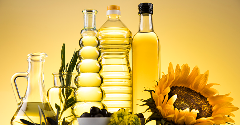
The seed oil backlash: How food and beverage brands are adapting
9 Jul 2024
There is a small but growing anti-seed oil movement, with some consumers perceiving seed oils – such as rapeseed oil and sunflower oil – as harmful for human health, despite the advice of nutritionists and assurances from dietary authorities.
Read more
Tesco launches laser-etched avocados to reduce plastic packaging
3 Jul 2024
UK supermarket chain Tesco is trialing a new laser-etched avocado range as part of its measures to cut down on plastic packaging and enhance its environmental profile.
Read more
Researchers tap into sticky rice as a potential source of clean label starch
8 May 2024
Pigmented waxy rice may prove to be a good source of clean label starch, according to researchers at the University of Arkansas.
Read more